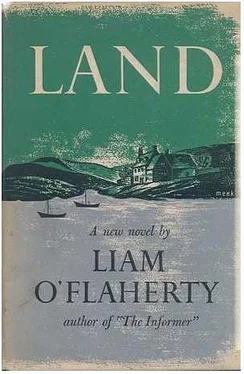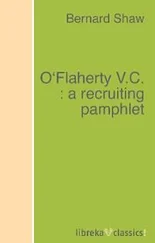Liam O'Flaherty - Land
Здесь есть возможность читать онлайн «Liam O'Flaherty - Land» весь текст электронной книги совершенно бесплатно (целиком полную версию без сокращений). В некоторых случаях можно слушать аудио, скачать через торрент в формате fb2 и присутствует краткое содержание. Город: London, Год выпуска: 2011, ISBN: 2011, Издательство: Bloomsbury Publishing, Жанр: Проза, на английском языке. Описание произведения, (предисловие) а так же отзывы посетителей доступны на портале библиотеки ЛибКат.
- Название:Land
- Автор:
- Издательство:Bloomsbury Publishing
- Жанр:
- Год:2011
- Город:London
- ISBN:9781448203888
- Рейтинг книги:3 / 5. Голосов: 1
-
Избранное:Добавить в избранное
- Отзывы:
-
Ваша оценка:
- 60
- 1
- 2
- 3
- 4
- 5
Land: краткое содержание, описание и аннотация
Предлагаем к чтению аннотацию, описание, краткое содержание или предисловие (зависит от того, что написал сам автор книги «Land»). Если вы не нашли необходимую информацию о книге — напишите в комментариях, мы постараемся отыскать её.
Land — читать онлайн бесплатно полную книгу (весь текст) целиком
Ниже представлен текст книги, разбитый по страницам. Система сохранения места последней прочитанной страницы, позволяет с удобством читать онлайн бесплатно книгу «Land», без необходимости каждый раз заново искать на чём Вы остановились. Поставьте закладку, и сможете в любой момент перейти на страницу, на которой закончили чтение.
Интервал:
Закладка:
“The events at Irishtown on the nineteenth of last month,” he said, “were an outrage against the Catholic Church. On that day, Michael Davitt and his followers tore off the mask of patriotism. They showed themselves in their true colours as the Communist disciples of Karl Marx. They openly preached the dismal Communist faith, that tried to drown Paris nine years ago in a welter of Christian blood. Naked savages could not have behaved worse than Irish Catholics did towards Canon Geoffrey Bourke, the saintly parish priest of Irishtown, on the nineteenth of April.”
Again there was a protest. This time it was general and without restraint. Even the most conservative and devout among the parishioners took part in it. Women shook their fists at him. Men stamped on the floor and cursed. Little boys put their fingers between their teeth and whistled.
It was the mention of Canon Bourke’s name that had caused this most scandalous scene. The priest in question, even though Father Cornelius had referred to him as “saintly,” was a notorious landlord and exploiter of the poor. His tenants, being threatened with eviction for arrears of rent, had appealed for aid to Michael Davitt. A force of six thousand men came in answer to their appeal. Canon Bourke’s house was surrounded. Speeches were delivered. The priest got afraid and capitulated at once to the demands of the tenants. This victory over a cruel landlord was hailed everywhere as a victory by the people. It was only natural, therefore, that Father Costigan’s congregation should have felt mortally insulted on hearing Canon Bourke described as “saintly.” There was, indeed, some measure of excuse for their shameful conduct.
All but a few score of the people left the church at this juncture. Seeing that it would be ridiculous to continue “making his position clear” to those who remained, Father Cornelius hurriedly read the archbishop’s pastoral letter. It was very short, merely forbidding all Catholics to associate in any way with Michael Davitt or the Fenians, who were branded as dangerous “to faith and morals.”
In the meantime, the people rushed about the crowded yard, shouting and brandishing their sticks. Here and there an excited man tried to address those nearest to him, only to be carried away after a few moments by a general rush to another part of the yard. Even women tried to find an audience for their oratory, with their shawls thrown back from their heads, which bobbed violently from side to side.
People shouted O’Dwyer’s name. They asked one another why he was absent and what had happened to him.
“He promised us to be here,” they cried. “Now where is he?”
Nobody had any information. Even the young men who were members of the Fenian Society had no information. Then the shrill voice of Bartly McNamara suddenly rose above the tumult.
“Men and women of Manister,” Bartly cried. “Gather round and listen.”
He had taken up his position on the flat top of a gate-post. With his high hat clutched before his bosom, he kept bowing in all directions, just like a garrulous duck.
“Gather round me,” he cried. “I want to talk to you.”
He received a very hostile reception at first from the people, to whom he was known as the parish priest’s chief crony. He had also been secretary to the local branch of the Tenant League, an organisation that had fallen into disrepute owing to its collaboration with the English garrison. Finally, he was a shopkeeper. The crowd, almost entirely composed of fishermen and farmers and artisans, regarded all shopkeepers as usurers and blood-suckers.
“Arrah! Look at himself,” said a huge man who mounted the gatepost beside Bartly. “Look who wants to talk, the parish priest’s straw man, the money-grabber, the gombeen man.”
He took Bartly by the crutch and by the nape of the neck.
“Take a good look at the scrawny little devil,” he cried, lifting the shopkeeper high into the air, “before I shake the life out of him.”
Bartly was by no means intimidated.
“Listen to me, good people,” he shouted as he dangled in the air, swinging his thin legs back and forth like a puppet. “I have an important talk to make.”
The crowd began to get impressed by the courage of the little fellow.
“Let the wart have his say,” a woman said.
Several people shouted in agreement with this woman. The huge man dropped Bartly on to the gate-post.
“All right,” the big fellow said. “Let him talk, then, but I’m standing here beside him. One word out of him against the Fenians and I’ll split his skull clean down the middle.”
“Have no fear,” Bartly said. “Sure, I’m the best friend the Fenians have in the parish. Who subscribes more to their funds than I do? They never go away empty-handed when they come to Bartly McNamara for a subscription.”
“True for you, Bartly,” a young Fenian shouted. “You’re never short of hearing, when we give you the hard word.”
“What’s more,” Bartly said, “I have handed over my good money for every worthy cause that made a demand on me, good money that is hard earned. That is more important than wild talk.”
An important section of the crowd applauded this point of view.
“You have to give the creature his due,” a man said. “You could blow him off your palm with one breath, but he always had courage and generosity.”
“Usurer and all that he is,” another man cried, “you’d find worse maybe before you’d find any better.”
“I can’t help being a shopkeeper,” Bartly said. “God made me one. It’s unfair, though, to look upon all shopkeepers as usurers. These days, believe it or not, it’s little profit there is in shopkeeping. The farmer, the artisan, the fisherman and the shopkeeper are all in the one boat. The farmers and the fishermen are ruined, so they can’t buy from the merchants, except on credit. The merchants have given all the credit they can carry. Now they may close their doors and go begging, unless something is done to set the wheels of commerce rolling again. And we all know that the wheels of commerce can’t roll while the landlords are demanding rack-rents and getting them with the help of the government. Then, in God’s name, let us get rid of the landlords. We are all in the one boat, as I said before, so let us stop fighting one another and unite against the common enemy.”
There was a wild shout of applause. The whole crowd was now on his side.
“Nearly every other parish in the county has already elected a Committee,” he continued. “Manister is being held back by one man. We all know who he is.”
“We know who he is,” the people shouted.
“Are we going to let one man make cowards of us?” said Bartly. “No,” the people shouted.
At this moment, Father Costigan came running down the green slope from the sacristy.
“You scoundrel!” he cried, shaking his fist at Bartly. “Get down from that gate-post.”
He was hurriedly taking off his vestments in the sacristy, when he heard McNamara address the people. He had rushed out while still wearing the alb. He was forced to hold up the skirts of this long white garment as he ran, in order to avoid being tripped by it. Pat Rice, the sacristan, came shuffling along behind.
“You traitor!” Father Costigan shouted when he reached Bartly.
The little shopkeeper stood his ground. He made a half turn, put his hat behind his back, thrust his head forward and faced the parish priest boldly.
“Neither you nor any other man has the right to call me a traitor,” he cried in a firm and respectful tone. “What’s more, it’s not a becoming thing for you to say, considering all I have done for you.”
“Get down,” said Father Cornelius, “before I lay hands on you.”
Читать дальшеИнтервал:
Закладка:
Похожие книги на «Land»
Представляем Вашему вниманию похожие книги на «Land» списком для выбора. Мы отобрали схожую по названию и смыслу литературу в надежде предоставить читателям больше вариантов отыскать новые, интересные, ещё непрочитанные произведения.
Обсуждение, отзывы о книге «Land» и просто собственные мнения читателей. Оставьте ваши комментарии, напишите, что Вы думаете о произведении, его смысле или главных героях. Укажите что конкретно понравилось, а что нет, и почему Вы так считаете.












